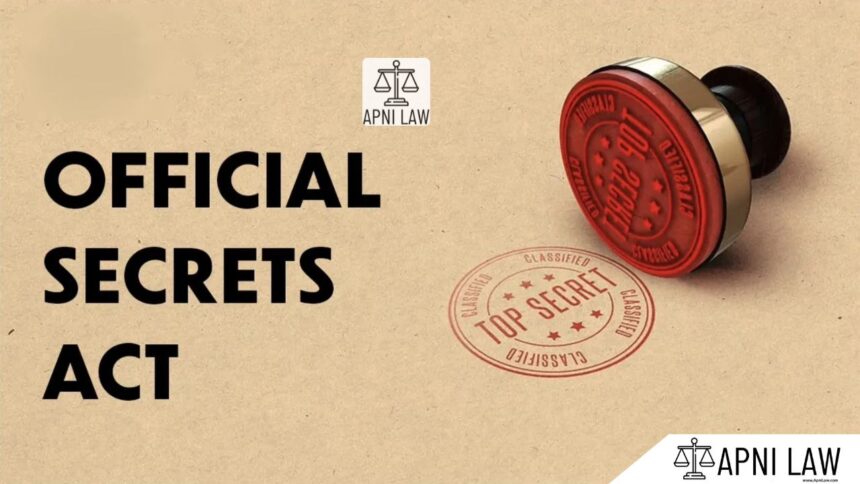The Official Secrets Act, 1923 is India’s main anti-espionage law. It criminalizes unauthorized handling or disclosure of classified information. The Act aims to protect national security, but it often sparks debates due to its conflict with the Right to Information Act and its impact on press freedom.
What Are the Offences Under This Act
The Act treats unauthorized entry, inspection, or movement in prohibited government areas as an offence. It punishes anyone who obtains, records, publishes, or communicates secret codes, passwords, plans, or information useful to an enemy. Possessing or sharing secrets without approval also counts as a crime. Even unintentional acts that threaten national security can lead to prosecution.
What Are The Penalties Under This Act
The law imposes strict punishments. Espionage-related crimes can bring imprisonment up to fourteen years, while serious offences may result in life imprisonment. Unauthorized handling of secret documents can lead to three years in prison and fines. Media houses and company directors can also be held liable. Penalties also cover wrongful entry, retention of documents, impersonation, or misuse of official uniforms.
Powers Under the Act
Authorities hold wide powers under this law. They can issue search warrants, conduct closed court trials, and force journalists to disclose their sources. Courts can exclude the public and media from hearings that involve sensitive information.
What Are Some Controversies and Criticism Under This Act
The Act often clashes with the Right to Information Act. Section 6 allows the government to withhold documents on secrecy grounds. Courts have ruled in favor of RTI, but departments still use this Act to block access. Journalists have faced prosecution for publishing material even if it was publicly available. The arrest of journalist Iftikhar Gilani and debates over the Rafale deal highlight this issue. Critics also argue that the Act is a colonial-era law unsuitable for a democracy that values transparency.
Landmark Cases
In 2002, journalist Iftikhar Gilani was arrested for holding “secret” documents that later proved to be public. Charges were withdrawn after contradictory military reports. During the Rafale deal controversy, the government claimed that publishing cabinet notes marked “secret” violated the Act. This raised questions about free speech and journalistic freedom.
What Are The Recent Reforms and Use
The law still applies in matters of national security and espionage. However, demands for reform have grown stronger. Experts call for a balance between protecting state security and ensuring transparency and free expression.
For any specific query call at +91 – 8569843472
Conclusion
The Official Secrets Act, 1923 continues to guard national security by criminalizing the disclosure of state secrets. At the same time, it faces criticism for restricting transparency and press freedom. Its clash with the RTI Act and its use against journalists keep it one of India’s most debated laws.








